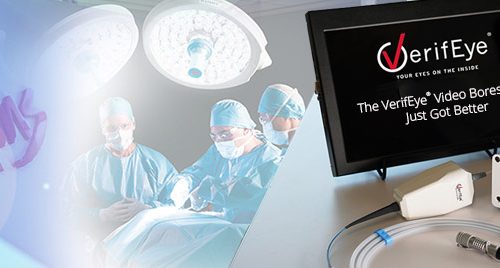It Takes a Village: Raising a Sterile Processing Department
Who is necessary to build a successful SPD? All "villagers" must collaborate to raise the sterile processing department to a higher functioning level.
You’ve heard the adage, “It takes a village to raise a child.” From parents, teachers, leaders, coaches, physicians, etc., these role models and resources are most helpful in meeting the needs of a child as he or she grows into adulthood. Without strong role models and resources, children may not learn necessary skills and could miss developmental benchmarks. This could result in missing their full potential as an adult. In general, the same theory applies to your sterile processing department (SPD).
Sterile processing departments (SPD) are clinical units that need to be monitored and regulated for compliance and efficiency. The complexity of modern surgical instrumentation has increased and improved tremendously in the last twenty-five years. The same can be said for the development of new surgical procedures and methods in which instruments are cleaned. A compliant and efficient sterile processing department, that produces the highest quality product possible based on modern industry standards, must be supported within SPD by the entire “village.” Below I will discuss who must help build a successful SPD.
First and foremost is the SPD itself. SPD staff must be equipped with industry best practices, expertise, knowledge, standard work instructions, quality measures and benchmarks.

- Leaders
Leaders (managers/directors) must be knowledgeable about their department, including: staffing, scheduling, counseling, corrective action, employee guidelines, hospital policies, SPD policies, regulatory standards, AAMI and IAHCSMM guidelines, AORN guidelines, instrumentation, surgery, inventory, sterile technique, equipment and quality metrics, just to name a few! They must be resourceful and very flexible in their work.
- Educators
An SPD educator who understands how to apply industry best practices with the changing needs of surgery, regulatory bodies and instrumentation within their current facility are part of successful SPDs. This resource should also support and work together with the SPD leadership.
- Quality Assurance (QA) Program
This staff member understands, analyzes and compiles data, quality issues, incident reports and sentinel events as they relate to critical compliance and patient care. This program should be 100% transparent, reporting data to hospital administrators, surgeons, infection prevention teams and the departments in which SPD serves. The QA resource also assists in developing audits and processes to fix potential and current issues.
- Instrument Coordinator
SPDs with an instrument coordinator are typically the departments with fewer lost instruments, discrepancies in inventory and improper instrument reprocessing. Instrument coordinators are helpful with educating OR staff on instrumentation issues, the on-boarding of new surgeons and new surgical procedures.
- OR
The main Customer of almost every sterile processing unit is the OR, or department of surgery. Collaboration between these two units is one of the most important factors of a successful SPD. The OR and SPD must be on the same page as it relates to all facets of instrumentation processing. The OR can greatly assist the SPD by putting instrument sets back in order as much as possible, protecting delicate instruments from being damaged by heavy instruments, removing trash/paper from sets and spraying instruments with an enzymatic solution.
In addition to these time and cost saving assistances, the OR and SPD must have a common understanding about the accuracy of the instrument sets, instrument trays, timely delivery of instruments and supplies, instrument substitutes, vendor, loaner sets, new physicians, pick sheets, count sheets, autoclave logs, reprocessing, and changes in practice. These are a just few of the shared responsibilities between the OR and the SPD. Therefore, regular meetings between the two departments should be mandatory. Representatives from each department should meet regularly, collaborate and share responsibility.
- Other departments supported by SPD
The other departments within the facility that SPD serves (i.e., clinics, ER, Cath. lab, floors, L&D, etc.) are all important Customers. Although the OR is the biggest Customer, these smaller departments are highly critical to the patients’ well-being and should never be overlooked. SPD needs to meet with these department leaders on a regular basis to ensure quality benchmarks and service needs are being met.
- Infection Control
Infection Control/Prevention (IC or IP) should also meet consistently and collaborate with SPD. Infection control should be the biggest advocate for SPD. This department should assist SPD with explanations to surgeons, nurses and other departments as it relates to processes/timelines concerning instrument reprocessing and meeting industry set standards. Infection control is an excellent resource to assist SPD in motivating hospital administration to approve new equipment purchases and services.
- Human Resources
SPD leadership needs HR to provide the best candidates for hire and assist with corrective action and employee issues. HR should be a regular presence to help SPD staff with medical leave, sickness and benefits.
- Vendors
Vendors must know and comply to the policy and procedures of SPD. This is non-negotiable. Vendors must ensure timely delivery of instrument sets so that proper processing can take place before surgery. Vendors must also be present after surgery to ensure accurate restocking, assembly and removal of the vendor sets. Hospitals that fail to hold vendors to industry standards and policies are usually found to have delays and incorrect/unavailable vendor sets. A surgeon SPD champion should assist SPD to ensure vendors understand the policy and are compliant
- Surgeons
Finally, the most successful SPDs are ones with regular and active participation from surgeons and/or surgeon leadership. There is no stronger voice for SPD than the surgeon SPD champion. These physicians can help an SPD’s relationship with the OR, vendors, clinics, floors, other departments, hospital administration, surgeon groups, purchasing and so on. SPDs need surgeons or an active surgeon SPD champion who understands the processes and regulations of SPD. Without a surgeon on board, much is lost by the SPD. This is one component that I would not do without.
As you can see, running a high quality and efficient SPD cannot be done by one department alone, it needs a village. Several departments are needed to contribute time, work and effort into making a great SPD. These positions and departments are just some of the critical pieces I would recommend to a facility that desires to run their SPD on a high level. There are certainly more contributors to “raising that SPD child,” but I believe these are the most needed.
The SPD is not an easy department to run. Having quality staff and encouraging communication between departments is critical. Incorporating all villagers is what ultimately raises a Sterile Processing Department to a department functioning on a higher level.
For more PROCESS PROs, click HERE.



